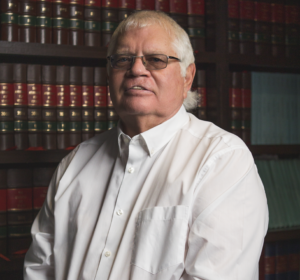Integrity and Honesty is part and parcel of an Attorney's make-up

Integrity and Honesty is part and parcel of an Attorney's make-up
Published on September 22, 2022
A survey in the U.S.A amongst 10,000 clients found that honesty and integrity are the most important qualities expected from their legal representatives. This finding seems odd in view of the fact that in South Africa all or most legal representatives are often perceived as being prone to bending the rules’ in favour of their clients. Honesty and integrity in South Africa seem to play second fiddle to the desire to make money.
We firstly take issue with the perception that all or most legal representatives are included in the argument. We believe that the majority of legal representatives act within the highest norms of integrity towards their clients, the courts and each other. Our belief is supported by the relatively small number of complaints against the legal representatives at the Legal Practice Council in this regard. Although any complaint against a legal representative in this regard is one to many, the number of complaints are relatively small, taking into account the number or extent of instructions provided to legal practitioners on a daily basis.
We secondly wish to argue that practising with the highest degree of integrity and honesty does not exclude a legal practitioner from still making money and / or representing its clients to the best of his / her abilities. The choice is therefore not between practising ethically or practising to make money, but between practising in accordance with the norms and standard required or practising without such norms and standards.
Guidelines as to the norms of integrity and honesty are referred to in the following clauses of the Code of Conduct:
The emphasis on words and phrases like 'highest standard of honesty and integrity', 'refraining from doing anything which could…..' and 'prevent any suspicion' indicates that a narrow and strict test is applied in interpreting the Code of Conduct.
Investigating Committees and Disciplinary Committees have the duty to establish whether a practitioner has acted with the highest standards of honesty and / or whether he / she / it had refrained from doing anything that could or might have brought the profession disrepute and / or whether he / she / it had avoided and prevented any suspicion of its integrity being compromised.
Where does this ‘narrow’ norms and standards leave legal practitioners who struggle daily to make ends meet? How does a single practitioner or small law firm avoid being dragged into fraud, corruption and illegal activities? Can one get away with bending the rules and thereafter continue practising according to the required norms and standard?
The answer to these questions are in a firm personal conviction in legal practitioners to exercise their profession according to their highest norms and standards of honesty and integrity. Neither the Rules nor the Code of Conduct should serve as motivation to practice as such. These practitioners are motivated from within.
In a humble attempt to practically assist legal practitioners to adopt ethical norms and standards in their practices, the following 10 guidelines are suggested:.
The suggested guidelines may not necessarily be a recipe for financial success but it surely will in the long run become your trademark and contribute to your success. Clients ultimately choose to instruct legal practitioners who exhibit these qualities.

C.M. Weiss
Practicing Consultant
Why you should choose us
At MW Attorneys we believe that quality of services counts and not quantity. We believe in sincere and continuous communication with our clients and we strive to deliver services of the highest quality, as we have been doing since 1997. We regard our clients as our most important asset!
MW Attorneys has a proven track record since:
1900
